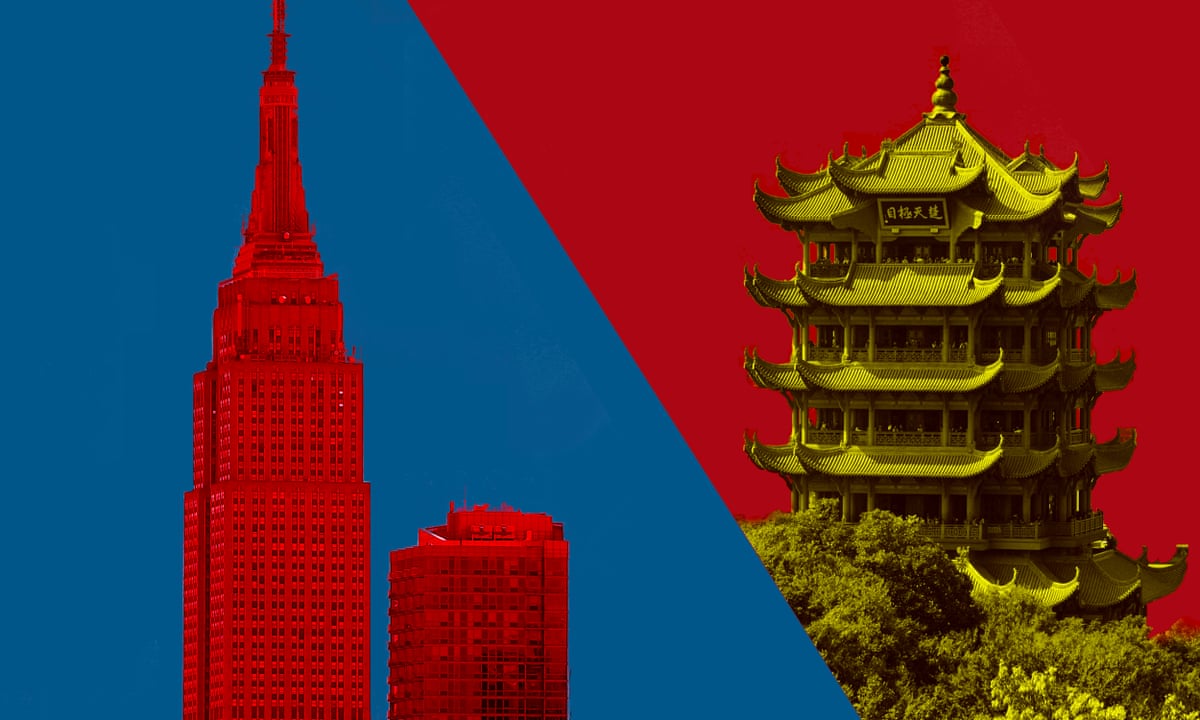
The competition between the West and China is of a different kind than the one the former experienced with the Soviet Union. This confrontation, still peaceful, comes with an almost unprecedented economic interdependence, Philippe Crevel explains in an op-ed.
With the descent of the Iron Curtain in 1947, two worlds faced each other; the West against the East, liberal democracies against communist regimes, market economy against state planning. In this last area, there wasn’t really a contest. The Western victory was quickly established thanks to the Marshall Plan, something the Soviet Union refused to participate with.
The competition between both systems lasted a little over 40 years. Despite several hot spots, particularly during the missile crisis in Cuba and the Berlin blockade, nuclear deterrence acted as a lifesaver, preventing the Cold War from tipping over into total war.
New Confrontation
Thirty years after the collapse of the Soviet Union, a new confrontation is taking shape between the two great powers of the 21st century, the United States and China. It resembles the previous conflict, in part. It still involves democracies and a communist regime, even if the communist regime is not as messianic as its former Russian cousin.
Two visions of society — and of humanity — are nevertheless in conflict. On the one hand, we have a liberal and individualistic society; on the other, a socially cohesive society based on Marxist and Confucian foundations. Democracies always claim to uphold universal values, while China doesn’t intend to impose its system beyond its borders, although this doesn’t prevent it from wanting to extend its sphere of influence, particularly to secure supplies.
2 Interdependent Giants
In contrast to the previous Cold War, economic globalization has made the two worlds totally interdependent. The West depends on China for many products, including computers that, thanks to the internet, allow the West to promote how it values freedom. China needs export revenue from wealthy Organization for Economic Cooperation and Development countries to ensure its development.
This interdependence is rooted in the decision during the 1970s by the Americans, Henry Kissinger in particular, to support China by integrating it into global commerce in order to create a possible front against the Soviet Union.
Thus, China, which had doggedly pursued an isolationist trade policy since the 16th century, opened up to the world, thanks to the United States. In 40 years, Chinese exports grew from 2% to 18% of global trade.
This interdependence, which didn’t exist with the Soviet Union, is similar in some respects to that which prevailed just before World War I, a period marked by a strong increase in international trade. Germany, a rising power, was considered to be increasingly dominant, especially by the British, particularly in warship construction. The British imposed production quotas to contain German power.
A Temporary Balance of Power
For several years, the Middle Kingdom (China) has proclaimed that it intends to become the first world power in all fields and overtake the West by 2049. With the “new Silk Roads” replicating the British and American models, China is weaving its web around the world. For now, economic interdependence and nuclear deterrence prevent China from taking any extreme positions as long as the balance of power in this area is maintained.
By developing new weapons, including hypersonic missiles, China hopes to gain an advantage over the United States. A technological and military slowdown in the West could drive the Chinese regime to choose a perilous path, especially as it pertains to Taiwan, a small island of about 14,000 square miles, but the world’s second largest producer of microprocessors.
Beyond that, the two conceptions of the world appear incompatible unless one believes synthesis is possible. The COVID-19 outbreak revealed that both worlds are driven by radically different visions, even if, in reaction to events, Westerners did reluctantly accept implementing measures that temporarily restrict personal freedom. Beyond the current crises, history teaches us that, as in the case of the Trojan horse or the Munich Agreement, a defensive position rarely wins.
Philippe Crevel is an expert in macroeconomics. Founder of Lorello Ecodata, a company focusing on economic studies and strategies, he also manages the Cercle de l’Epargne, a study and information center dedicated to savings and retirement.

Leave a Reply
You must be logged in to post a comment.